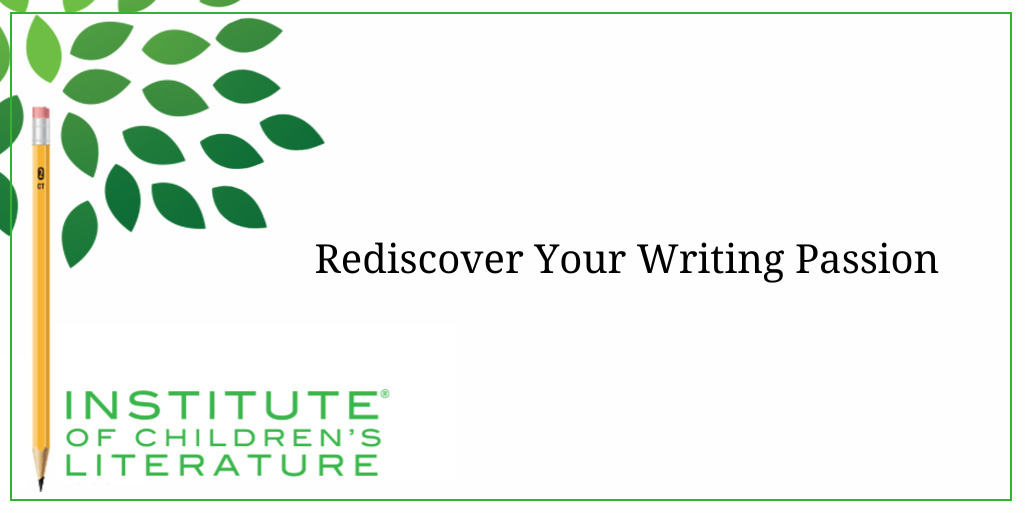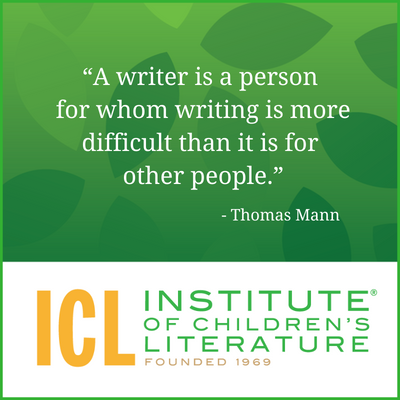
5 Ways Writers Can Prep for 2025 Goal Setting
Before we roll on to the new writing year, let’s harness our optimism for the blank slate before us and prepare for our 2025 Goal Setting just for writers.

We teach our students how to write and get published!
View our Course Catalog >
Whenever we take a break from writing, which happens often when the demands of family or other work require our full attention, we can sometimes find it difficult to get back in the groove. We want to write. We are making a point to fit writing time into our life. But somehow it feels very flat. It can feel like the passion for writing simply isn’t there and that can be frustrating and a little scary. Will we ever get it back? Let’s talk about ways to rediscover your writing passion.
The first thing to remember is that habits, including the writing habit, take time to build. Once built they tend to fuel themselves to keep going. But once broken, they need time to rebuild. Any habit you have was built gradually through repetition. So the fact that you don’t automatically “click” with your writing again is not a poor reflection on your identity as a writer. It’s simply how habits work, and regular writing is a habit.

If you’re feeling profoundly uninspired, you can use your daily writing time journaling or trying writing prompts, practicing skills through writer exercises, or working through assignments from a writing course. The key is to do some kind of writing every possible day. The goal is not to write something great or write something publishable. It’s to write something. All writing is valuable, whether it leads to publication or not because all writing builds skills and helps us solidify those writing habits.
Some people find they develop their writing habit and writing passion best by throwing themselves at the problem. They concentrate on putting in the hours to produce some kind of writing. Others find that type of pressure is too much and too easily creates burnout. They ease back into writing, doing a little each day and slowly building up. Both are perfectly acceptable ways to get back into your writing after a forced break. Only you know which one works for you.
Sometimes writers offer advice based on what worked wonders for them, without realizing just how personal writing is for each writer. What works for me (which is sitting down for a set number of hours a day and then working over that allotted time when things are really flowing) may not be right for someone else. Trying to force yourself to fit into someone else’s style can be damaging to your writing energy and your belief in yourself. It’s okay to be the writer you are. Find the amount of writing time that works for you.
The best way to find your writing time is to try different things until you find the one that challenges you but doesn’t exhaust you or leave you feeling like a failure. You want to push yourself a little, otherwise, you may find you don’t ever pull out of the summer writing slump. However, only push in a way that doesn’t overwhelm you. You don’t how to meet someone else’s output goals. You only need to find your own working stride to reignite your writing passion.
Whatever you end up doing, be gentle with yourself. There are enough negative messages all around us. As writers, we can be sensitive to things like that, so make it a point to tell yourself the supportive, encouraging things you need to hear. As writers, what we do is important. We are often the conscience, the teacher, the historian, the visionary, and the heart of our society. It’s an important job, so give yourself the room and the permission to do it.
With over 100 books in publication, Jan Fields writes both chapter books for children and mystery novels for adults. She’s also known for a variety of experiences teaching writing, from one session SCBWI events to lengthier Highlights Foundation workshops to these blog posts for the Institute of Children’s Literature. As a former ICL instructor, Jan enjoys equipping writers for success in whatever way she can.

Before we roll on to the new writing year, let’s harness our optimism for the blank slate before us and prepare for our 2025 Goal Setting just for writers.

Writers can be thin-skinned when it comes to getting feedback on their work. Let’s look at 4 ways to positively deal with constructive criticism!

Rejection is part of the territory when it comes to being a writer. Today we offer reflection for writers to help redirect your efforts after a rejection.
1000 N. West Street #1200, Wilmington, DE 19801
© 2024 Direct Learning Systems, Inc. All rights reserved.
1000 N. West Street #1200, Wilmington, DE 19801
© 2024 Direct Learning Systems, Inc. All rights reserved.
1000 N. West Street #1200, Wilmington, DE 19801
© 2024 Direct Learning Systems, Inc. All rights reserved.
1000 N. West Street #1200, Wilmington, DE 19801
© 2024 Direct Learning Systems, Inc. All rights reserved.

1000 N. West Street #1200, Wilmington, DE 19801
© 2025 Direct Learning Systems, Inc. All rights reserved.

1000 N. West Street #1200, Wilmington, DE 19801
©2025 Direct Learning Systems, Inc. All rights reserved. Privacy Policy.
3 Comments